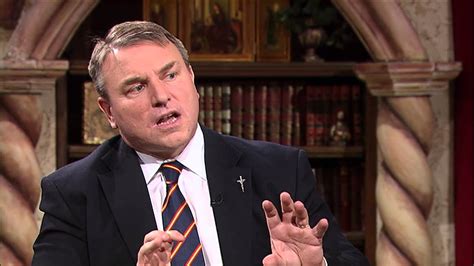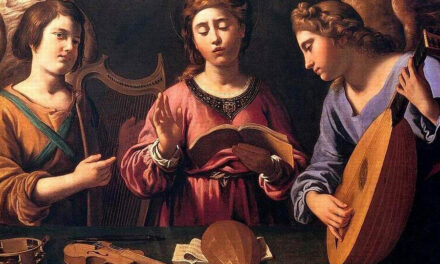Joseph Pearce believes that poetry merits much closer attention by Catholics and, by inference, all Christians.
To make his point, Pearce has compiled the collection Poems Every Catholic Should Know, recently published by Tan Books. He just as well could have called the book “Poems Every Christian Should Know” or “Poems Every Educated American Should Know.”
But Pearce is Catholic and is part of an effort to reignite the Catholic literary and imaginative tradition, once a source of great works of art, and develop an audience once again capable of appreciating artistic beauty with Catholic themes. And this book, which should appeal to a broad audience of readers despite the title, surely is part of the effort.
Pearce, whose work includes literary biographies as well as a collection of his own poetry, has selected sixty poets and some anonymous pieces, Catholic and Christian, beginning with St. Hildegard of Bingen (1098-1179), ending with a poet of our own times, the author himself. Pearce includes his poem as a grateful nod to tradition, not out of editorial hubris.
In his preface, Pearce tells us that in compiling this selection of poets and poetry he sought to “produce a balanced and representative cross-section of the finest Christian verse in the English language.”
In addition, his aim was to provide poetry that would appeal to a broad audience and not just to poets or academics. He succeeds with both.
The well known sit next to the little known, the great next to the minor in this collection. Poets every marginally educated American should have read and studied are included; among them, Dante, Chaucer, Spenser, Jonson, Donne, Milton, Dryden, Blake, Coleridge, Elizabeth Barrett Browning, Tennyson, Christina Rossetti, and Dickinson.
Also included are a good range of poets Christian readers may already know, such as St. Francis of Assisi, St. Gertrude the Great, St. Robert Southwell, George Herbert, Richard Crashaw, John Bunyan, John Henry Newman, George MacDonald, Francis Thompson, and Chesterton.
There are good and interesting poets students of American literature once read and who deserve a larger audience: Bradstreet, Whittier, Longfellow, Very.
And there are more of varying backgrounds, including some closer to our times such as Gerard Manley Hopkins and Alice Meynell.
One omission is T.S. Eliot, but he is quoted twice in the notes on individual poets.
This is a collection, therefore, that can be read as a good, solid anthology of Christian poetry. In fact, the collection originally was published by Ignatius Press as Flowers of Heaven: One Thousand Years of Christian Verse.
It is also an anthology, however, that can be read as a supplement to spiritual reading. Tan has packaged the book so that it is easy to carry about. And the preface Pearce has written for this new edition serves to elucidate why we might wish to reflect on these poems.
His title for this collection, Pearce says, raises the question of whether Catholics, or Christians for that matter, should read poetry at all. Pearce could have given a range of answers to this question, but his practical answer is the best reason for reading this book.
Reading good poetry, Pearce writes, can prevent us from wasting time in activities such as watching television, noodling on the web, or indulging in social media. Such activities, he argues, can dull the mind and transform us into narcissistic, prideful, and self-centered persons.
Poetry can open our eyes and lead us to humility and gratitude. And this, I believe, is the primary reason to read this book. As Pearce states:
“One who has humility will have a sense of gratitude for his own existence and for the existence of all that he sees. This gratitude enables him to see with eyes of wonder. The eyes that see with wonder will be moved to contemplation on the goodness, truth, and beauty of the reality they see.”
Pleasing as it is to meet these poets great and small once again, some of the works of the lesser known poets Pearce has included are a great discovery for me.
One of these discoveries is Sidney Godolphin (1610-1643), a friend of Ben Jonson and Thomas Hobbes, who was killed at age 33 while fighting for the Royalist forces in the first English Civil War. Here is the final stanza of his poem “Hymn,” a reflection on the wise men and the shepherds:
When then our sorrows we apply
To our own wants and poverty,
We look upon in all distress
And our own misery confess,
Sending both thanks and prayers above,
Then though we do not know, we love.
Another discovery for me is Norman Gale (1862-1942) who published over two dozen books poetry. While his fine, short poem “The Country Faith” is included in The Oxford Book of English Verse, it’s a poem I somehow regrettably missed. I am grateful to Pearce for including it in his collection:
Here in the country’s heart
Where the grass is green,
Life is the same sweet life
As it e’er hath been.
Trust in a God still lives,
And the bell at morn
Floats with a thought of God
O’er the rising corn.
God comes down in the rain,
And the crop grows tall—
This is the country faith,
And the best of all.
The reality we encounter in poems like those of Godolphin and Gale is vastly different from the one we encounter in television shows and movies, in games, and even in the majority of the poetry and fiction that is being published today.
Yet, as Pearce might say, the reality of Godolphin and Gale is a reality we most need. When we read and reflect on poems of such humility and gratitude and wonder we learn to forsake man’s way for God’s. There’s no better reason why a Catholic or Christian should read such poetry.














